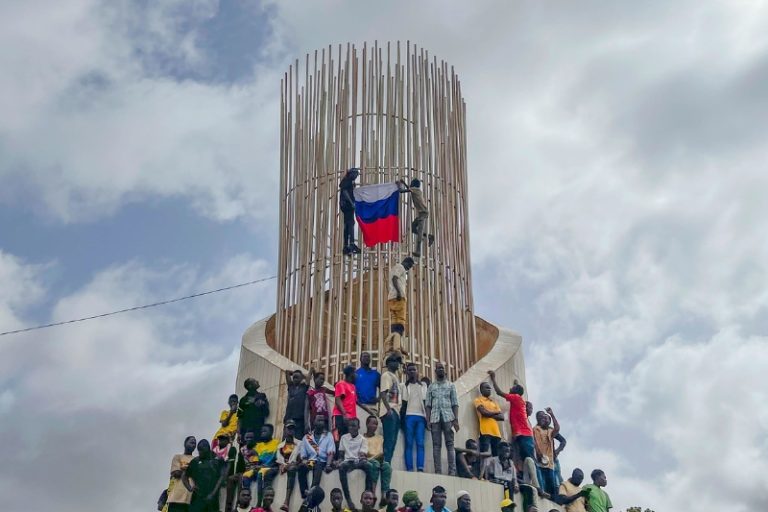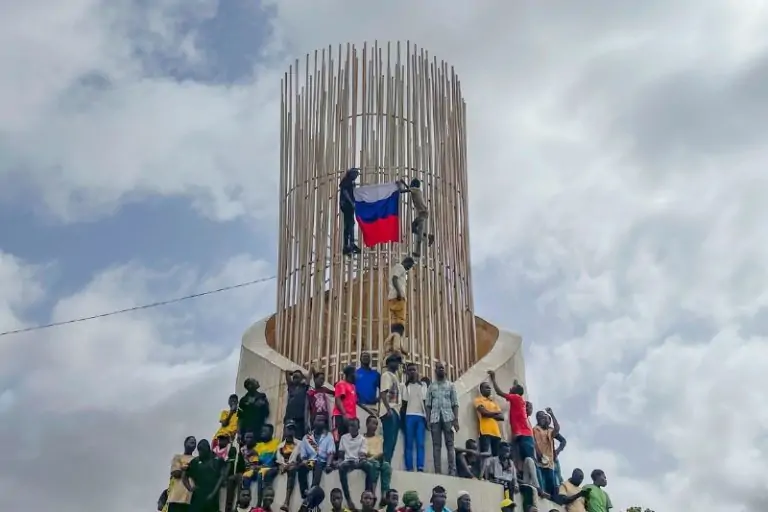

us nigerian relations strained as niger turns to russia amid concerns of growing russian influence in africa
Niger’s announcement to terminate the military accord with the US marks a significant shift in its foreign policy, signalling a growing embrace of Russia’s influence in the region. This decision comes amid rising tensions between the US and the junta-led government in Niger, fueled by concerns over Russia’s expanding military presence in the Sahel region. The move underscores the complexities of geopolitical dynamics in northwest Africa and raises questions about the future of US-Nigerian relations.
The decision to end the military agreement follows a tense meeting between Niger’s military junta and top US diplomatic and military officials, including Gen. Michael Langley. US officials expressed concerns about Russia’s military presence in Niger and the future of Air Base 101, a crucial hub for US counterterrorism operations in the region. The junta‘s decision to terminate the agreement reflects growing frustration with what it perceives as US interference in Niger’s sovereign affairs, exacerbating diplomatic tensions between the two countries.
Niger’s pivot toward Russia raises concerns about the erosion of US influence in northwest Africa and the broader Sahel region. With Russia strengthening military ties with Niger, there are fears that Moscow could establish a foothold in the Sahel, potentially destabilizing the region. The move also complicates counterterrorism efforts, as the US presence in Niger has been instrumental in combating extremist groups operating in the area. As geopolitical rivalries intensify, the Sahel region faces heightened uncertainty and security challenges.
The US has expressed concern over Niger’s decision and remains in communication with the junta-led government. However, the termination of the military agreement raises questions about the future of the US military presence in the country. If forced to withdraw, it could have significant implications for regional security and counterterrorism efforts. The US drone operations from Air Base 101 have been crucial in monitoring threats in the Sahel region, and any disruption to these operations could embolden extremist groups.
Russia’s increasing presence in Niger highlights its strategic interests in the region, including access to natural resources and arms sales. The Kremlin’s efforts to court Niger’s military junta underscore its ambition to expand its influence in northwest Africa. By offering military equipment without the same human rights conditions imposed by the US, Russia presents an attractive alternative to Niger. The intensifying competition between global powers for influence in the Sahel region could exacerbate instability and conflict.
As Niger navigates its evolving foreign policy, it faces complex challenges and uncertainties. Balancing relations between the US and Russia while addressing domestic political dynamics poses significant challenges for the junta-led government. The decision to terminate the military agreement reflects broader geopolitical shifts in Africa and underscores the region’s importance in global power struggles. As the US reassesses its strategy in northwest Africa, it must contend with the growing influence of Russia and other external actors in shaping regional dynamics.
The U.S.-based driver training company Zutobi analyzed road safety worldwide and found South Africa stays last in driving danger since…
The Basketball Africa League (BAL) returns for its 2025 season with exciting changes and developments. Since 2019 the NBA-linked basketball…
The Somali president supports their military forces to eliminate the threats from Al-Shabaab, ISIS, and Al-Qaeda. The Somali National Army…
UAE President Sheikh Mohamed bin Zayed Al Nahyan held talks with President Faustin Archange Touadéra of the Central African Republic…
African football teams struggle intensely in the World Cup Qualification rounds to earn their place on the international football stage.…
The journey toward the 2026 FIFA World Cup is rapidly intensifying for all African teams, who now hold a historical…
This website uses cookies.